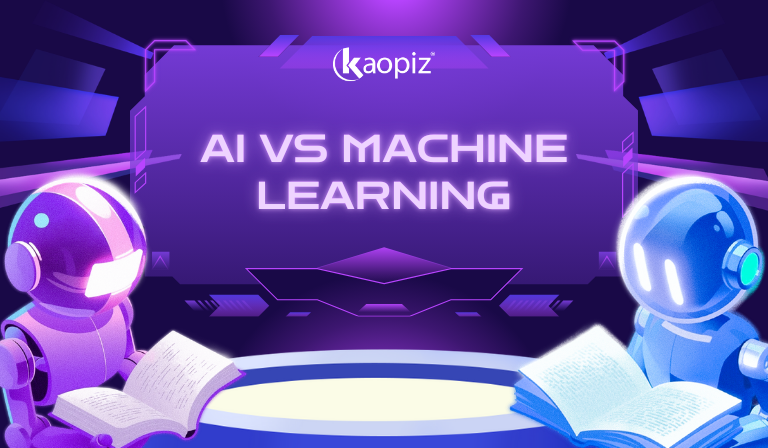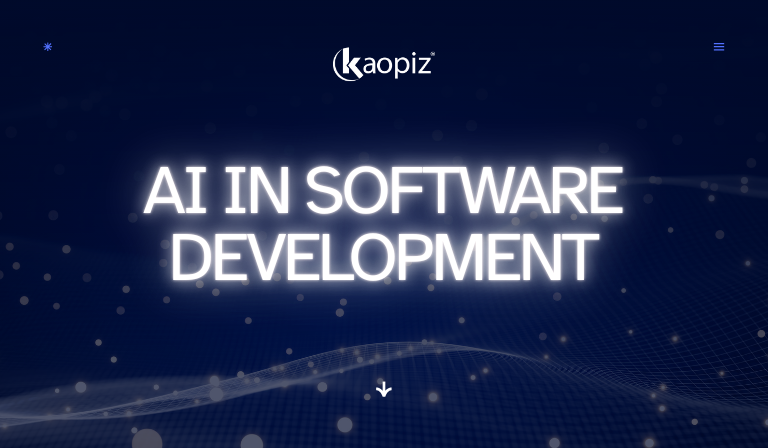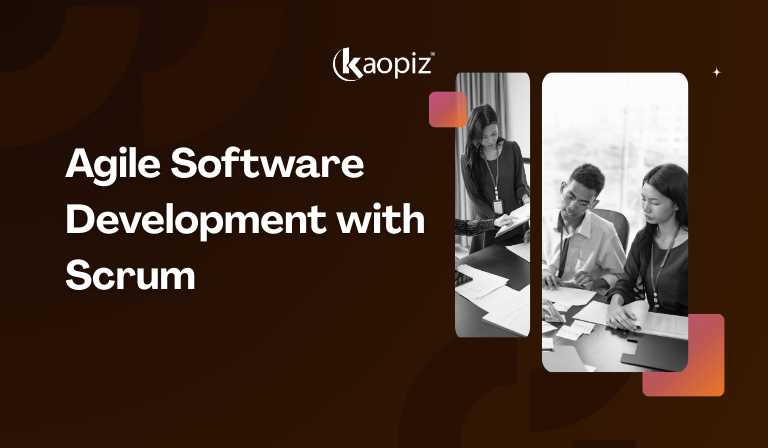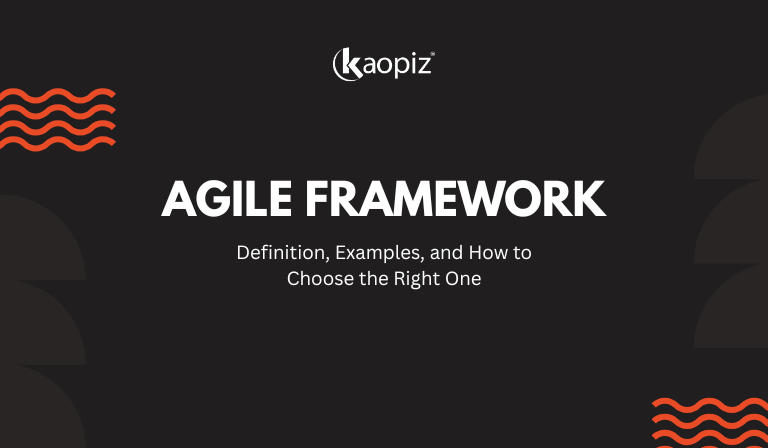LMS Development Cost: Factors, Pricing, and Budgeting Guide
Learning Management Systems (LMS) are powerful tools used by organizations, educational institutions, and corporations to facilitate online learning and training. As the e-learning industry continues to grow, understanding the cost associated with LMS development becomes essential for anyone planning to build a new platform. This comprehensive guide explores the factors influencing LMS development costs, provides a cost breakdown, and shares tips on optimizing your budget while ensuring quality.
Table of contents
Understanding Learning Management Systems (LMS) and Initial Planning
A Learning Management System (LMS) is a software platform designed to manage, deliver, and track educational content and training programs. LMS platforms vary in complexity, offering features such as course management, assessment tools, user management, content delivery, analytics, and integrations with other systems.

LMS Planning: Establishing a Solid Foundation
Proper planning is crucial before beginning the development process. Here are the key steps to ensure a successful LMS project:
- Define the Target Audience: Is your LMS intended for corporate training, K-12 education, universities, or online learning platforms? Understanding your audience helps determine the features and user experience your platform needs.
- Set Clear Objectives: Define the primary goals for your LMS, such as improving employee training efficiency, enhancing educational outcomes, or providing certifications. Clear objectives guide the development process and help allocate budget and resources effectively.
- Research Competitors: Analyze existing LMS platforms like Moodle, Blackboard, and Canvas to identify features that work well and those that can be improved. This competitive analysis provides insights into market trends and user expectations, shaping your LMS’s unique value proposition.
By establishing these foundational steps, you set up your LMS development project for success, ensuring a clear direction for future stages.
Ready to launch your Learning Management System? Check out our latest article for a complete guide!
From Concept to Launch: Planning Your LMS
Key Factors Affecting LMS Development Costs
LMS development costs can vary greatly depending on several key factors. Understanding these variables is critical for accurate budgeting and resource allocation:
a) Scope and Complexity of Features
- An LMS can range from a basic platform with essential features (e.g., course management, tracking, and assessments) to a comprehensive system with advanced capabilities like gamification, mobile compatibility, AI-powered learning paths, and integrations with external tools. The more complex the features, the higher the development costs.
b) Development Team and Location
- The choice of development team significantly impacts costs. Hiring an in-house team or partnering with a local development firm can be expensive, while outsourcing to regions with lower labor costs (e.g., Vietnam or India) offers a more affordable LMS solution without compromising quality.
c) Technology Stack and Infrastructure
- The technology stack (e.g., React, Node.js for front-end and back-end) and hosting environment (cloud-based or on-premise) influence both the development and ongoing maintenance costs. A cloud-based solution, for example, offers scalability but requires monthly subscription fees, while on-premise systems might have higher upfront costs but lower recurring expenses.
d) Customization vs. Pre-built Solutions
- Developing a custom LMS tailored to specific organizational needs is typically more expensive than using a pre-built or open-source LMS (e.g., Moodle). However, custom solutions allow greater flexibility and can align better with long-term goals.
Understanding these factors helps you plan a realistic LMS development budget and make informed decisions during the development process.

Breakdown of LMS Development Costs
LMS development involves various components that contribute to the overall cost. Here’s a breakdown of the primary expenses:
a) Development and Design Costs
- UI/UX Design: Designing a user-friendly interface is crucial for any LMS platform. The cost of UI/UX design depends on the complexity of the user interface and the need for responsive and mobile-friendly designs.
- Backend Development: This includes building core functionalities like user management, content management, tracking systems, and integrations with other software. Backend development is often the most significant portion of the budget.
- Frontend Development: The frontend development involves creating the interface learners and administrators interact with. It includes course navigation, dashboards, and other interactive elements.
b) Integration Costs
- Third-Party Integrations: Integrating other tools such as payment gateways, virtual classrooms, and analytics platforms increases development complexity and costs.
- APIs: Application Programming Interfaces (APIs) facilitate communication between your LMS and other software (e.g., HR systems). Developing and integrating APIs adds to the overall expense but is essential for seamless operation.
c) Hosting and Maintenance Costs
- Hosting Environment: Cloud-based LMS platforms typically have ongoing subscription fees based on usage, while self-hosted solutions involve server costs, security measures, and IT support.
- Ongoing Maintenance: Maintenance costs cover updates, bug fixes, and technical support. Ensuring your LMS remains functional and secure over time is critical for user retention and satisfaction.

Effective Strategies to Reduce LMS Development Costs
Reducing LMS development costs without compromising quality is possible through the following strategies:
a) Opt for Open-Source LMS Solutions
- Platforms like Moodle offer open-source LMS solutions that can be customized and scaled based on specific requirements. This approach significantly reduces development expenses compared to building an LMS from scratch.
b) Outsource Development to Cost-Effective Regions
- Partnering with development companies in countries like Vietnam, where labor costs are lower, is a practical way to develop an affordable LMS while ensuring high-quality output. At Kaopiz, we specialize in delivering cost-effective LMS solutions without compromising on quality.
c) Use Pre-built Modules and Templates
- Leveraging pre-built modules and templates can save time and resources during the development process. This method allows developers to customize existing solutions rather than build everything from scratch.
d) Plan for Incremental Development
- Developing an LMS in stages—starting with a Minimum Viable Product (MVP) and gradually adding advanced features—helps spread out costs over time and ensures you can launch quickly, gather feedback, and refine the platform based on real user data.
Why Choose Kaopiz for Your LMS Development Needs?
Kaopiz is a trusted name in LMS development, offering tailored solutions that fit any budget and requirement. With expertise in building robust, scalable, and feature-rich LMS platforms, Kaopiz helps organizations create impactful e-learning experiences. Here’s why Kaopiz stands out:
a) Expertise in Affordable LMS Development
- Kaopiz specializes in delivering affordable LMS solutions without compromising quality. Our development teams have extensive experience working with diverse clients, ensuring your LMS meets both your budget and educational needs.
b) Comprehensive Service Offering
- We offer end-to-end LMS development services, including UI/UX design, backend development, API integration, and ongoing maintenance. Whether you need a custom solution or modifications to an open-source platform, we have you covered.
c) Proven Track Record and Client Success Stories
- Our successful collaborations with clients globally demonstrate our ability to deliver high-quality LMS platforms that align with business objectives and drive engagement.
For more information on digital learning platforms and standards, you can visit:
- Ministry of Education, Singapore: Comprehensive resources on education technology and LMS guidelines.
- U.S. Department of Education: Policies and standards for e-learning and online learning systems.
One Reply to “LMS Development Cost: Factors, Pricing, and Budgeting Guide ”
Leave a Comment
Trending Post





















Pingback:Enterprise Learning Management: Boost Skills & Productivity | Kaopiz Holdings | Kaopiz | Software Development